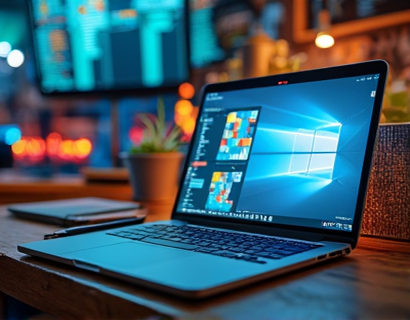Maximizing Global Civic Impact: A Comprehensive Resource Guide for Deploying Universal Democratic Systems Worldwide
In an increasingly interconnected world, the importance of universal democratic systems cannot be overstated. These systems are foundational to fostering transparent, accountable, and participatory governance, which in turn enhances civic engagement and promotes human rights. This comprehensive guide aims to equip global citizens and civic engagement enthusiasts with deep insights and practical strategies to effectively deploy democratic systems across diverse communities. By understanding the core principles and implementing evidence-based approaches, individuals can significantly contribute to strengthening democratic practices globally.
Understanding Universal Democratic Systems
Universal democratic systems are characterized by several key elements: free and fair elections, rule of law, protection of human rights, freedom of expression, and an independent judiciary. These components work together to ensure that power is distributed equitably and that the voices of all citizens are heard. To maximize global civic impact, it is crucial to first grasp these fundamental principles and how they interconnect to form a robust democratic framework.
The rule of law is a cornerstone of any democratic system. It ensures that laws are applied consistently and fairly, protecting individuals from arbitrary actions by those in power. Free and fair elections are essential for legitimate governance, allowing citizens to choose their representatives without coercion or manipulation. The protection of human rights, including freedom of speech, assembly, and religion, is vital for a vibrant democracy where diverse perspectives can flourish.
Challenges in Deploying Democratic Systems Globally
Despite the universal value of democratic principles, deploying these systems worldwide faces numerous challenges. Political instability, economic disparities, cultural differences, and external interference often hinder the establishment and maintenance of democratic governance. In some regions, authoritarian regimes resist democratic reforms, using various tactics to maintain control. Additionally, the lack of civic education and awareness can lead to low voter turnout and disengagement, weakening the democratic process.
Economic factors also play a significant role. Poverty and inequality can undermine democratic institutions by creating dependencies and fostering corruption. In such environments, basic needs take precedence over political participation, making it difficult to build a strong civil society. Moreover, the global economic system can perpetuate inequalities, with wealthier nations exerting disproportionate influence over less developed countries, often at the expense of local democratic processes.
Strategies for Effective Deployment of Democratic Systems
To overcome these challenges and promote universal democratic systems, a multifaceted approach is necessary. This involves a combination of local initiatives, international support, and leveraging technology to enhance civic engagement. Here are some key strategies to consider:
- Strengthen Civil Society Organizations (CSOs): CSOs play a crucial role in advocating for democratic reforms, monitoring elections, and providing civic education. Supporting and empowering local CSOs can help build a strong foundation for democratic governance. This includes providing funding, training, and resources to enable them to operate effectively and independently.
- Promote Civic Education: Educating citizens about their rights and responsibilities is essential for active participation in the democratic process. Implementing comprehensive civic education programs in schools and communities can foster a culture of engagement and accountability. These programs should cover topics such as the importance of voting, understanding government structures, and recognizing human rights.
- Utilize Technology for Engagement: Technology can be a powerful tool for enhancing civic participation. Online platforms can facilitate voter registration, provide access to government information, and enable citizens to voice their opinions and concerns. Social media can also be leveraged to mobilize support for democratic causes and raise awareness about important issues.
- Support Independent Media: A free and independent press is vital for a healthy democracy. Journalists play a crucial role in holding those in power accountable and informing the public about governance issues. Supporting independent media through funding, training, and legal protection can help ensure that citizens have access to accurate and unbiased information.
- Foster International Cooperation: Global collaboration can amplify efforts to promote democratic values. International organizations and democratic nations can provide technical assistance, share best practices, and offer financial support to countries transitioning to or strengthening their democratic systems. Diplomatic efforts should focus on encouraging dialogue and cooperation rather than intervention.
Each of these strategies requires careful planning and implementation tailored to the specific context of the target community. It is essential to engage local stakeholders, including government officials, community leaders, and citizens, to ensure that initiatives are culturally relevant and sustainable.
Case Studies of Successful Democratic Reforms
Examining successful democratic reforms can provide valuable insights and inspiration for future efforts. One notable example is the transition to democracy in Chile following the fall of Pinochet's dictatorship in 1990. The process involved a comprehensive approach, including the drafting of a new constitution, the establishment of independent electoral bodies, and extensive civic education campaigns. These efforts led to free and fair elections, the restoration of civil liberties, and the creation of a more inclusive political system.
Another inspiring case is the peaceful transition of power in Botswana since its independence in 1966. Despite being a former British colony, Botswana has maintained a stable democratic system characterized by regular elections, a free press, and respect for human rights. The country's commitment to good governance and anti-corruption measures has earned it a reputation as one of Africa's most stable democracies.
These case studies highlight the importance of a holistic approach that addresses both institutional and societal factors. They also underscore the need for patience and persistence, as democratic reforms often take time to take root and bear fruit.
Role of Global Citizens in Promoting Democratic Values
Global citizens have a critical role to play in promoting democratic values and practices worldwide. Here are some ways individuals can contribute:
First, educate oneself about the state of democracy in different parts of the world. Stay informed through reliable sources and engage in discussions to raise awareness about democratic issues. Second, support organizations and initiatives that work towards democratic reforms and civic empowerment. This can be done through donations, volunteering, or spreading the word about their work.
Third, advocate for democratic principles in one's own community. Engage in local politics, participate in community meetings, and encourage others to vote and participate in the democratic process. Fourth, leverage social media and other platforms to amplify voices advocating for democracy and human rights. Finally, consider traveling to countries in need to offer skills and expertise in areas such as civic education, election monitoring, and legal support.
By taking these steps, global citizens can contribute to a ripple effect of democratic empowerment that transcends borders and inspires positive change worldwide.
Conclusion
Maximizing global civic impact through the deployment of universal democratic systems is a complex but achievable goal. By understanding the core principles of democracy, addressing the challenges that hinder its implementation, and adopting effective strategies, individuals and organizations can make a significant difference. The journey towards a more democratic world requires commitment, collaboration, and a shared vision of a just and equitable society. As global citizens, we have the power to shape the future of governance and ensure that the voices of all people are heard and respected.











































